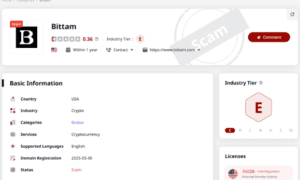Crowdfunding real estate is a newer sort of investing. Individual investors in this type of investing, pool their funds for real estate investments, making it possible for them to fund projects without putting in a lot of their own individual money.
As a frame of reference in traditional real estate investing an investor would have to buy a property outright or syndicate the investment out amongst their network. Alternatively the other traditional way of investing in real estate has been through private real estate funds which require usually a minimum of $100K or through a public REIT.
With more a more non-accredited investors wanting to diversify their portfolio, it should come as no surprise that this kind of investing is becoming more and more popular because of its low barrier to entry for real estate investments.
If you’re interested in finding out more specifics or want to learn more about the advantages, dangers, and specific strategies of real estate investing we’d recommend you check out this article by modestmoney about what is crowdfunding real estate.
The four main types of real estate investing
Real estate investing although well understood is still largely considered an alternative investment asset. As such the way in which you can invest in real estate comes down to a case by case deal. However, there is some uniformity amongst types of real estate investment, mainly the principal method of investment. These include, traditional equity investments, debt investments, development investments, and preferred equity investments.
Traditional equity investments
Equity investments are largely the same as investing in stocks. Individuals acquire “shares” of the property overall. Meaning each share represents a part of the property. This means that for all financial benefits associated with the property, you get paid in proportion to your ownership.
Simplified down if you invest in a property and get 100 shares out of 1000, then every rent check you get 10% of the payment minus any admin and upkeep fees. This effectively gives you limitless upside and usually an increasing payment as rents go up.
Additionally, if the property is sold, your entitled to 10% of the returns once fees and any other outstanding payments are taken care of.
Development investments
Although far rarer on crowdfunding platforms, development investments are definitely worth mentioning. In this type of transaction, you act in much the same way as an equity investor does. The main difference is that development investments usually are being developed with the goal of being sold rather than looking for a rent return.
The comparable way to think about them is as a growth stock instead of equity which is more like dividend paying stock.
Debt investments
Investors act as lenders for the borrower, who is investing in individual properties. Investors are not accountable for managing the properties, the borrower is.
Effectively you’re acting as pseudo bank, with a fairly minimal amount of capital.
Debt investors receive regular interest payments for their loaned capital, not rental income or other similar income streams. With most plans, the principal is returned once the term is finished.
This type of instrument is widely considered much safer as in a capital stack it comes right after an initial bank loan in terms of surety. However, having a limited risk profile also makes the upside on this type of investment very controlled. Unlike an equity investor if the property triples in value, your payment will still only be the set interest payment.
But, just like the stock market, there is always the potential for things to go wrong. Assuming the borrower defaults on the loan the capital lent might not be able to be recovered. Especially if the property that was given the loan has other outstanding debts to primary parties like a bank.
Preferred equity
Preferred equity investments or pref is an interesting blend of both debt and common equity. Basically, after debts are repaid, pref investors get paid back to a certain portion then get treated as common equity investors. Meaning they get higher returns than anyone else in a capital stack under the right circumstances.
However, as you might have guessed preferred equity is usually a last line of funding a building will elect to take on, and will usually only do so if they are in desperate need of the capital. As such these investments are normally considered the riskiest amongst real estate investments. These risks can be mitigated but it ultimately depends on the management of the deal.
Which platform is best?
Deal management and flow is high dependent on the platform you use. With more and more buildings needing financing, the growth of crowdfunding real estate platforms has grown dramatically.
Two of the biggest today are Fundrise and Crowdstreet, if your interested in how they compare you should check out this article on Fundrise vs Crowdstreet.
But there are a lot of options, and each offer a unique way to diversify your portfolio. So if your curious about what else is on the market you can check out this article about the best crowdfunding real estate platforms.
Regardless of which one you choose, it’s important to do your own due diligence into each deal you become a part of.



































